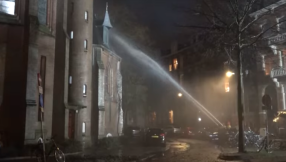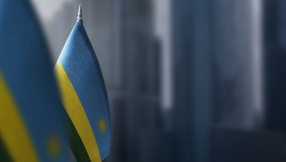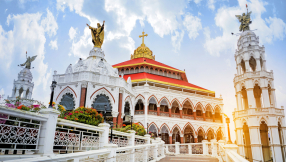The autopsy report on a Pakistani Christian killed by gunshots raises questions whether the death was a suicide, as the owner of the weapon has claimed.
The Punjab state medical examiner's report on the April 16 death of Haroon Haidar potentially indicates he suffered two injuries to his skull, raising questions whether the 24-year-old married father of two could have killed himself. Surviving relatives have asked the examiner, Dr. Rizwan Naseer, to clarify whether the two injuries are the result of two separate gunshots, which would indicate someone else fired the first, and fatal, shot.
Haroon Haidar's father, Haidar Masih, said his son had been threatened a day earlier by a coworker angered by his son's refusal to convert to Islam.
It was about 9 a.m. on April 16 when Haidar Masih, working at Pakistan Printing Press, received news that his son, Haroon, had been killed. He rushed to the spot in Lahore where a Bank Islami Pakistan is under construction, and where Haroon worked as a sweeper. Police already had cordoned off the area.
There, Haidar Masih said he learned from police that a security guard, Umar Farooq, the only person present with Masih in the building at the time of incident, had told police he had left his pump-action shotgun on the table and had gone upstairs to the washroom, where he heard the gunshot.
"The police told me that the guard says that as soon as he heard the noise he rushed downstairs where he saw Masih had killed himself by shooting in the forehead with his gun," Haidar Masih told World Watch Monitor.
Five hours later, the family and relatives were allowed to view the body. "The entire skull above the eyebrows had been blown off while the body was lying in the sitting posture on the sofa," said Khalid Shehzad, who runs a registered center in Lahore that provides food, education and legal assistance to Christians. He lives near Haidar Masih's home.
Shehzad told World Watch Monitor that Haroon Haidar's surviving relatives and friends told him he showed no signs of depression or leaning toward suicide.
"Rather, they said that he was happily married and a well composed person," Shehzad said. He said Haroon Haidar had a 2-year-old daughter and 1-year-old son. His widow, Hina Bibi, said her husband was a faithful man and they were leading a happy life.
"I cannot believe my husband can kill himself," she said. "We had plans for the children's better future, sending them to school for a respectable life in society."
Shehzad said that the police, regarding the death as a suicide, originally did not want to register a case. They relented late that night after dozens of Christians blocked the road.
In the police report, lodged in the Naulakha Police Station, Haidar Masih said his son told him the day before he died that he had been threatened at his workplace on account of his religious beliefs.
"The security guard, Umar Farooq, at the Islami Bank has forced him to convert to Islam and in case of refusal he would kill him," Haidar Masih testified in the report.
Police Investigation Officer Muhammad Arif said Farooq claimed he couldn't have pulled the trigger. "Farooq says that he had left the gun on the table and had gone to the washroom upstairs," Arif told World Watch Monitor.
The autopsy report concludes that "the cause of death in this case is total injuries (1, 2) to brain with firearm weapon."
"The post-mortem report doesn't explain much so we have submitted another application to the doctors (to) clarify whether one shot was fired, or two," Arif said. He also said the gun is being inspected for fingerprints.
Haroon Haidar's cousin, Parvaiz Babloo, who was on duty as a sweeper at the Mayo Hospital at King Edward Medical University when the body of his cousin was brought in, said police asked the authorities to declare the death a suicide.
"The duty doctor plainly refused and asked the police to first register a criminal case, then the autopsy could be conducted," Babloo told World Watch Monitor. He said the doctors were sure that it was not a suicide case and later they were being pressured by the police. "If we hadn't protested and blocked the road then the police would have succeeded in suppressing this case," he said.













